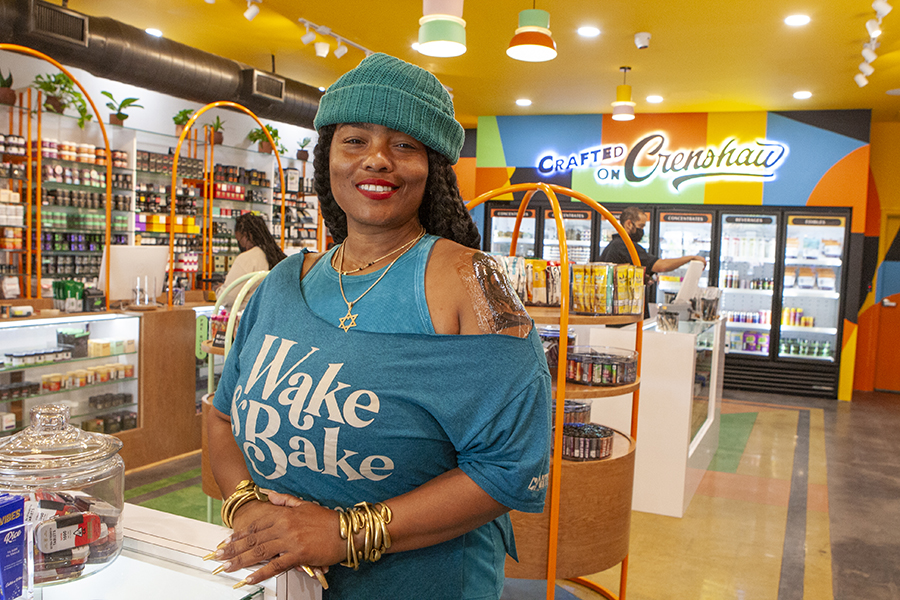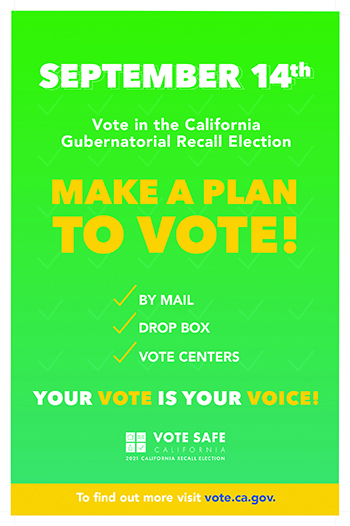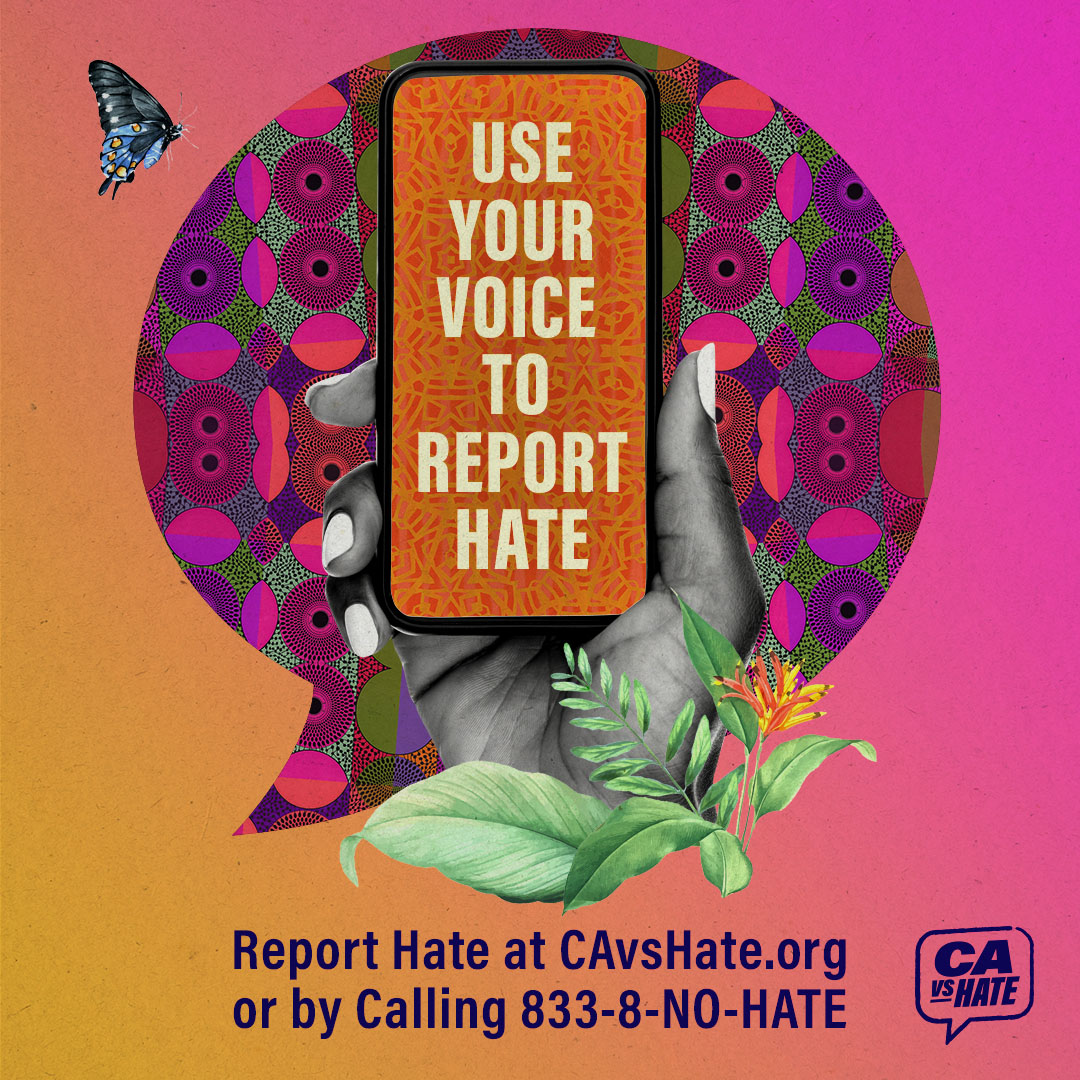Kika Keith fought hard to bring a Black-owned cannabis dispensary to her community, which will better serve the area than a dispensary that is owned by somebody from outside of the community. She’s also erasing the stigmas associated with cannabis use.
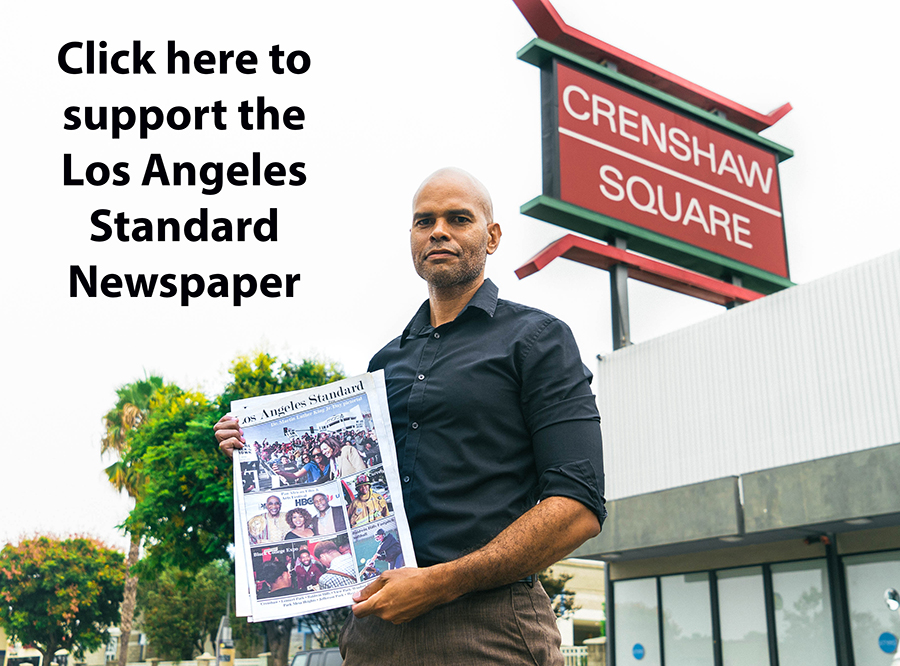
By Jason Lewis
Over the last several years, cannabis dispensaries have been popping up all over Los Angeles. As of December of 2020, there were 184 licensed retailers in the city, according to the Los Angeles Department of Cannabis Regulation. Some of those dispensaries are in Black communities, but most do not have Black ownership, and most owners of dispensaries take money from local Black communities back to their own neighborhoods where they are from.
Kika Keith, who grew up in and still resides in the Crenshaw District, has been fighting for inclusion since the city of Los Angeles introduced the idea of a social equity program for cannabis businesses in 2017. Her monumental efforts have led to the opening of Gorilla Rx on Crenshaw Boulevard, just south of Stocker Street. The location is next door to Maverick’s Flat.
Community Reinvestment
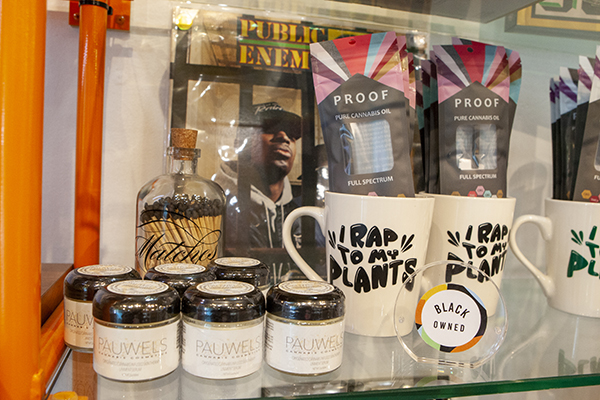
Cannabis dispensaries are extremely profitable businesses, which is why so many business owners from outside Black communities have opened locations in Black communities. But Keith didn’t open this business solely to enrich herself.
“This is an example of community reinvestment,” she said. “That’s how we intend on spending our profits. It’s not for my own personal generational wealth. If I don’t make sure that the wealth and health of my community grows and ascends at the same time that I do, that would be a problem for me and who I come from.”
Many cannabis dispensaries in Black communities do not hire people from local areas, but Keith hired 20 employees who are from the Crenshaw District. Because of her efforts, several local activists and community groups have taken to the streets to ensure that money from cannabis dispensaries stays within the community.
“LA Cannabis Co. was boycotted out of here,” she said. “They were existing in our community for 10 years. They did not hire from our community. They brought in their family members. They didn’t give back to the community. We should have a community benefits plan. They didn’t donate in the community. They didn’t beautify the community. They took the dollars that they made from us, and they took it back over to their side of the world.”
Portions of the revenue produced by Gorilla Rx will be awarded to local non-profit organizations that benefit the surrounding areas. Through Keith’s own non-profit organization Sweet Strings, which was an inner-city youth orchestra, she figured out that relying on government funding was not a sustainable business model.
“If we have to always rely on grants and government funding to do right by your children, then we will always remain at the bottom rung of everything,” she said. “We’ll have the highest mortality rates, the highest dropout rates; until we as a people start doing for ourselves.”
Having a Black-owned business that is highly profitable and reinvests back into local communities is a powerful way to combat gentrification.
“We need to see a Black business thrive,” Keith said. “We don’t have enough hope and inspiration and success stories of people who look like us.
“We see the gentrification happening around us. This is the last area that you see Black people that are thriving. So it’s really important to me that we maintain that as we watch gentrification take over everywhere else.”
The fight for inclusion and social equality
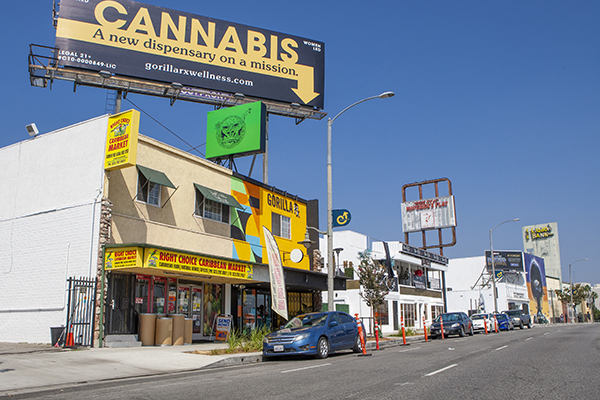
The war on drugs over the last 50 years sent Black people off to prisons in droves around the nation, with many people being incarcerated over marijuana charges. Many states today have legalized the use of marijuana, using the term cannabis. While Black people continue to sit in prison, White people are reaping the majority of the profits from legalized marijuana. According to Keith, 96 percent of the cannabis licenses are held by White men.
Los Angeles’ social equity program was supposed to give people of color an opportunity to break into the cannabis industry, but issues within the program made it difficult for Keith and other Black people to open dispensaries.
“When I first heard about the social equity program in 2017, it seemed like it was designed to fail,” she said. “As most government programs that come into our inner cities, they look good, but when you start digging into it, the resources aren’t there. I compare it to Indian reservations. You give these folks the land, but you don’t give them water on the land. They don’t have electricity, and they don’t have the access to capital. We saw the same thing with the social equity program. To start a business, you need a good $1 million. So how do you make it available to us where we are a priority in licensing, but we don’t have education; we don’t have the resources.”
To help Black people understand the process of securing a license and opening a dispensary, Keith held classes for two years, teaching people about licensing and regulations, and also paring them with investors.
“If enough of us have this license, and you’re talking a $1 trillion industry, that’s when you start to see the dollars recycled,” she said.
Keith hit other roadblocks, such as another dispensary opening next door to her location before she could open. Regulations state that two cannabis dispensaries cannot be within 700 feet of each other. If the other dispensary was allowed to stay, Keith would have needed to find another location.
“We were fighting for years for this place, and then a medical marijuana dispensary moved in next door to us,” she said. “They were licensed. So the community came out for five straight weeks and boycotted to make sure that Crenshaw remained Black owned and so that we had an opportunity.”
Erasing the stigma of cannabis
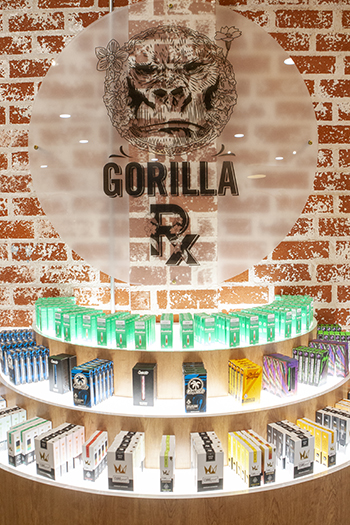
“Folks were caught up in the stigma of cannabis,” Keith said. “We’re always thinking of folks smoking it, but we really haven’t looked at how it affects our endocannabinoid system. How there are so many benefits. How there are so many different ways to take it, to rub it. We have ailments that can be healed from cannabis.
“Our goal is to erase the stigma. It is to show that cannabis can be a part of your lifestyle, a part of your well being. You don’t have to just smoke it. There’s so many uses, there’s so many products. It starts to bring down those stigmas from grandparents, your mothers and your fathers, that think about it as somebody smoking a joint and getting high. It is more than that.”
Gorilla Rx carries over 1,600 cannabis products, many of which come from Black-owned companies.
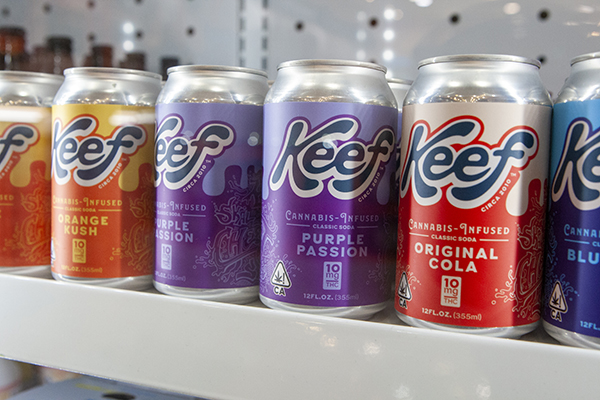
“We want to meet the needs of every single person,” Keith said. “From the young millennials who smoke recreationally to the seniors citizens who need to rub it on their arthritic conditions. For the folks that have anxiety and PTSD. There’s all kinds of beverages, concentrates. We even have coffee beans that are infused. I call ourselves the Trader Joe’s of Cannabis.”
Gorilla Rx has a staff that is very knowledgeable on the cannabis products and can walk customers through the store, answering their questions. Customers must be at least 21 years old and they need to show their ID. Gorilla Rx is located at 4233 Crenshaw Boulevard. Visit their website at www.gorillarxwellness.com and follow them on social media.


